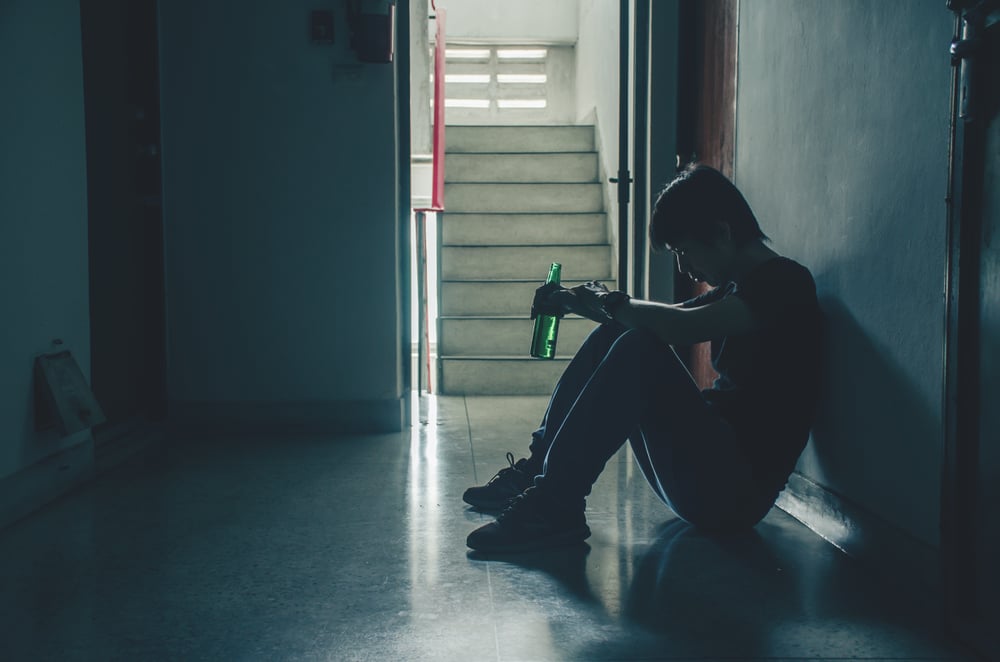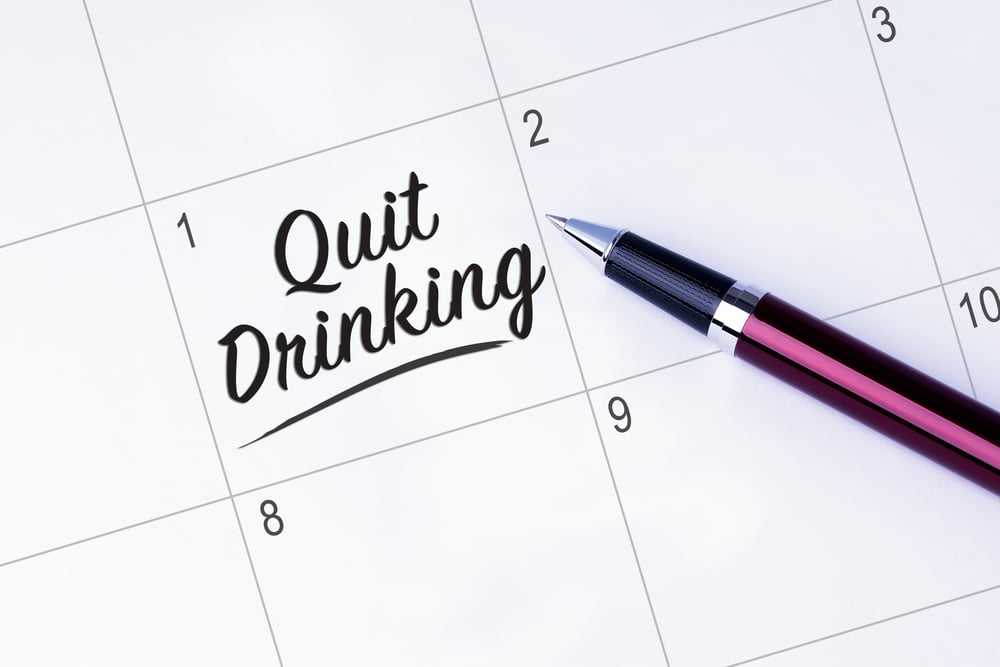Alcohol has been part of human culture for about 9,000 years. If we’re still here for another 9,000, it’s a good bet that many of us will still be drinking. But while alcohol used to play crucial roles for our ancestors like sterilizing the water, for many modern humans the drawbacks now outweigh the benefits. Whether you’re trying to completely quit drinking alcohol or just want to stop and cut back, here’s how to do it.
Alcohol and Your Health
Alcohol isn’t inherently bad. A little red wine every day can help protect your heart, control blood pressure and prevent several types of cancer. However, as Paracelsus said, “the dose makes the poison,” and beyond a moderate dose, alcohol can be a powerful poison.
- Binge drinking can lead to risky or dangerous behavior, car crashes, alcohol poisoning, and death.
- Over time, heavy drinking can lead to brain damage, mental health problems, many illnesses, and loss of jobs, friends, and family.
- Additionally, there are a number of medical reasons why certain people shouldn’t drink, from migraines and liver damage to interactions with medication.
 So how much is too much?
So how much is too much?
The CDC identifies two kinds of excessive drinking:
- Binge drinking: 4+ drinks for women, or 5+ for men at one sitting
- Heavy drinking: 8+ drinks for women, or 15+ drinks for men over the course of a week
Women are more susceptible to harm from excessive drinking from liver and brain damage. Body size, medical conditions, and certain genetic traits can also make some people extra susceptible to alcohol-related health problems as well.
If you’re drinking more than 1 drink per day on average (women) or 2 drinks per day (men), you may want to consider cutting back.
How to Quit Drinking Alcohol
Assess Yourself
For some people, to quit drinking alcohol will be the hardest thing they ever do. For others, It will just be a minor lifestyle tweak. We all have our own strengths and weaknesses and our own approaches to change. Before you can eliminate alcohol (or anything else) from your life, you need to take an honest look at yourself and your own capabilities.
Ask yourself:
1. What is my goal?
Do you want to quit drinking alcohol completely? Or do you just want to cut back? If the latter, when and how much will you be drinking in the future?
2. Why do I want to stop drinking?
Are you stopping because of risky behavior, a specific health issue, a desire for self-improvement or some other reason? Understanding your own motivation can help you stay motivated.
3. How big a change will this be for me?
Is alcohol a daily part of your life, or just something you have every now and then? Do you depend on alcohol to destress or enjoy yourself, or is it something you could take or leave?
4. How have I done with intentional changes in the past?
When you start a new diet or begin an exercise routine, do you tend to stick with it, or do you give it up after a few weeks? What factors have helped you succeed in the past? What factors have undermined you?
5. What might be some obstacles to quitting?
Think about all the ways alcohol is currently part of your life. If you’re used to drinking with your friends every Friday, for example, it will probably be harder to stop and stay sober on Fridays. Similarly, if you always have a drink to relax after a difficult day, you’ll probably feel tempted to start drinking on those days.
 Make a Plan
Make a Plan
First, write down a goal, and make it as specific as you can, using an “I will” statement. You should strive to make something that you can stay true to, that’s realistic for you. It doesn’t necessarily have to be forever — it’s perfectly fine to write “I will stay completely sober for 6 months, and then revisit my plan,” but you have to be willing to actually stick with it for 6 months.
Now, use your list to make a plan. Think about all the times you normally drink, and how you’re going to avoid them. If you drink when you’re at home, it’s probably best to remove alcohol from your house entirely. If you drink with friends on the weekends, you’ll have two choices: volunteer to be the designated driver or plan out alternate activities. Be honest with yourself — good friends will understand and support you if you have to stay away from the bar for a while.
Talk to Supportive People
To fully quit drinking can be very difficult — particularly if you’re alcohol dependent. For many people, it helps to have support. That doesn’t necessarily have to be something formal like a 12-step group or a therapist; you might just want to make a plan to check in with your spouse or a good friend once a week to hold you accountable.
However, for heavier drinkers, formal support is often a huge help. Many people drink excessively because they feel alienated and cut off from their community. Having a community of other people who are quitting drinking can both hold you accountable and relieve the alienation that leads you to drink in the first place.
Find a 12-step program or another alcohol-cessation program in your neighborhood, walk in and introduce yourself. You’ll meet people who will be happy to go with you along your whole journey.
Drinking and Cortisol
Many people drink alcohol to deal with stress, but heavy or prolonged drinking actually increases the production of cortisol, known as the “stress hormone.” Quitting drinking also increases cortisol levels, which can contribute to anxiety and illness, wearing you down and make it harder to quit successfully.
Medical marijuana aka. cannabis should be used under the direction of a licensed healthcare provider. This site is intended for adults and legal medical marijuana patients and contains links to products we sell on our marketplace.
How does Heally work?
Creating an account is easy, free, and safe in our HIPAA compliant platform. Visit with a doctor from the comfort of your home or on the go using your cell phone or computer. No appointment is necessary. If the physician thinks cannabis is right for your health and wellness goals, they will discuss treatment options and will grant you a downloadable certification document. Heally’s Telehealth platform currently serves California, Connecticut, Florida, Maryland, Massachusetts, New York, and Ohio with medical recommendations. Please note there’s no charge if the doctor doesn’t believe the video visit meets her or his standard of care.

